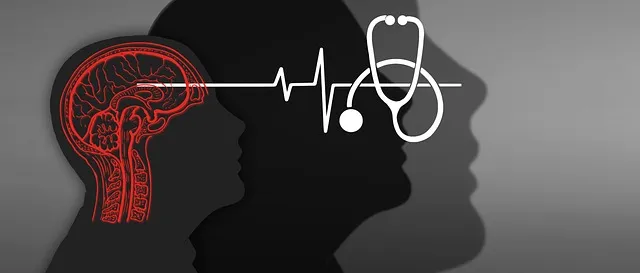Aurora Kaiser Permanente advocates for RFM (Resilience, Flexibility, Mastery) as a powerful tool to enhance mental health support. This framework focuses on developing coping skills and resilience, helping individuals navigate challenges and improve well-being. By integrating tailored communication strategies, Mind Over Matter principles, and community outreach during mental health appointments, they significantly impact patient outcomes, encouraging self-esteem improvement and adaptability. Their comprehensive approach, including risk assessment for cultural sensitivity and public awareness campaigns, fosters open dialogue and positive, lasting outcomes, particularly in managing stress related to mental health appointment numbers. This structured process involves evaluating unique patient needs, introducing conflict resolution techniques and positive thinking exercises, connecting patients with local resources, and regularly assessing progress for personalized resilience-building journeys. Measuring success through participant surveys and long-term outcome follow-ups ensures continuous improvement in mental health initiatives, specifically targeting the Aurora Kaiser Permanente mental health appointment number.
Resilience is a key component in fostering mental well-being, especially within healthcare systems. This article explores the implementation of RFM (Recovery, Flexibility, and Mastery) exercises as a potent tool for enhancing mental health support. We delve into its impact on patients’ recovery journeys, using Aurora Kaiser Permanente’s successful integration as a case study. From designing tailored programs to implementing step-by-step guides, this comprehensive overview covers effective strategies for healthcare professionals aiming to incorporate RFM techniques into mental health appointments, with a focus on improving patient outcomes.
- Understanding RFM and Its Impact on Mental Health Support Systems
- Aurora Kaiser Permanente: A Case Study in Integrating Resilience Exercises
- Designing Effective Resilience Building Programs for Mental Health Appointments
- Implementing RFM Techniques: Step-by-Step Guide for Healthcare Professionals
- Measuring Success: Evaluating the Effectiveness of RFM and Resilience Training
Understanding RFM and Its Impact on Mental Health Support Systems

Understanding RFM—or Resilience, Flexibility, and Mastery—is key to enhancing mental health support systems, as advocated by experts like Aurora Kaiser Permanente. This framework focuses on building coping skills development within individuals, particularly those who have experienced trauma or face ongoing challenges. By fostering resilience, folks can better navigate life’s hurdles, enhancing their overall well-being.
Incorporating RFM into mental health services can significantly impact patient outcomes. It encourages self-esteem improvement and equips individuals with tools to adapt and overcome adversity. This approach not only supplements traditional therapy but also empowers people to actively participate in their mental health journey, making it a valuable asset within Trauma Support Services and beyond.
Aurora Kaiser Permanente: A Case Study in Integrating Resilience Exercises

Aurora Kaiser Permanente serves as an excellent case study for integrating resilience-building exercises into healthcare practices. This leading health organization recognized the importance of addressing mental well-being alongside physical health, particularly in today’s fast-paced and stressful world. By incorporating tailored communication strategies and Mind Over Matter principles during mental health appointment numbers, Aurora has successfully enhanced patient care.
Their innovative Community Outreach Program Implementation further solidifies their commitment to community wellness. Through this initiative, Aurora reaches out to diverse populations, offering resilience workshops and support groups that foster a sense of belonging and empowerment. This holistic approach not only improves individual resilience but also contributes to the overall strength and adaptability of the community.
Designing Effective Resilience Building Programs for Mental Health Appointments

Resilience-building exercises tailored to mental health appointments can significantly enhance patient outcomes and overall well-being. Aurora Kaiser Permanente’s approach to integrating these programs recognizes the unique challenges faced by individuals seeking mental healthcare. By designing effective resilience training, professionals can empower patients with coping strategies that transcend cultural barriers, as highlighted in the Risk Assessment for Mental Health Professionals. This involves considering cultural sensitivity in mental healthcare practice to ensure inclusivity and accessibility.
Moreover, incorporating public awareness campaigns development within these sessions can foster a supportive environment. Such initiatives educate both patients and providers about resilience’s role in managing mental health, encouraging open dialogue and active participation. Through these tailored programs, mental health appointments become transformative experiences, not just diagnostic or treatment sessions, ultimately contributing to more positive and lasting outcomes.
Implementing RFM Techniques: Step-by-Step Guide for Healthcare Professionals

Implementing RFM (Resilience, Flexibility, and Mastery) techniques is a powerful approach for healthcare professionals aiming to enhance patient well-being, particularly within the context of mental health care at Aurora Kaiser Permanente. This step-by-step guide outlines a structured process for incorporating RFM into clinical practice.
Begin by evaluating each patient’s unique needs and circumstances. Identify areas where they may require support, such as managing stress or anxiety related to their mental health appointment number. Next, introduce Conflict Resolution Techniques to help individuals navigate challenges and improve coping mechanisms. Encourage positive thinking through affirmations and cognitive reframing exercises tailored to their experiences. Additionally, consider implementing a Community Outreach Program that connects patients with local resources, fostering a sense of community support. Regularly assess progress and adjust strategies accordingly, ensuring each patient’s journey towards resilience is personalized and effective.
Measuring Success: Evaluating the Effectiveness of RFM and Resilience Training

Measuring success is a vital aspect of any training program, and RFM (Resilience, Flexibility, and Mindfulness) exercises are no exception. To evaluate the effectiveness of these sessions, Aurora Kaiser Permanente can employ a multi-faceted approach. One method is tracking participant engagement and satisfaction through surveys or feedback forms after each mental health appointment number. This provides insights into how well the program meets its objectives and the overall experience of the attendees.
Additionally, long-term outcomes can be assessed by following up with participants to gauge their mental wellness over time. Public Awareness Campaigns Development and Communication Strategies can play a significant role in this process. By collecting data on improved stress management, enhanced emotional regulation, or increased resilience, Aurora Kaiser Permanente can demonstrate the tangible benefits of their RFM and Resilience Training programs, ensuring continuous improvement and positive impact on mental health initiatives.
The implementation of RFM (Resilience, Flexibility, and Mastery) techniques in mental health support systems has proven to be a game-changer. As highlighted by the case study of Aurora Kaiser Permanente, integrating resilience exercises into mental health appointments can significantly enhance patient outcomes. By following a structured guide for designing effective programs and employing specific strategies during healthcare interactions, professionals can foster a sense of control and empowerment among patients. The successful application of RFM, as demonstrated in this context, underscores its potential to revolutionize mental health care, particularly when tailored to individual needs during each appointment.






